Huntsville has become one of Alabama’s fastest-growing rental markets, driven by its thriving tech sector, aerospace industry, and consistent population growth. For property investors, this means steady tenant demand and strong opportunities. But profitability is never guaranteed. A sudden roof repair, a longer-than-expected vacancy, or a bump in insurance premiums can quickly chip away at income. That’s why landlords must treat budgeting not as an afterthought, but as the foundation for financial stability. For many in North Alabama, success starts with rethinking how rent collection is managed to ensure income is reliable every month.
Key Takeaways
- Conservative income projections keep expectations realistic and protect cash flow.
- Setting aside 5–10% of monthly rent creates a cushion for unexpected repairs.
- Property upgrades increase rental appeal and justify higher rents.
- Tax deductions such as depreciation and repairs can save landlords thousands.
- Professional management makes financial tracking more accurate and efficient.
Keep Income Projections Realistic
It’s tempting to multiply monthly rent by twelve and call it annual income. A property renting for $1,800 per month appears to generate $21,600 each year. But once you account for vacancies, turnover costs, and occasional late payments, the actual figure may be closer to $19,800.
Huntsville’s rental market is strong, but conservative estimates protect landlords from being blindsided by income gaps. Budgeting for a 5–8% vacancy rate ensures that even in slower leasing seasons, landlords remain financially stable.
Understand the Full Range of Expenses
Rental income is only half the financial picture. Landlords also face ongoing costs that can shift with market conditions or tenant activity.
Examples of expenses Huntsville landlords must consider:
- Routine maintenance like HVAC servicing for hot Alabama summers.
- Landscaping and pest control to keep properties attractive.
- HOA or condo association fees for certain communities.
- Utility expenses if included in the lease.
- Property management services, which many find cost-effective because they reduce vacancies and tenant-related risks.
Budgeting for these costs ensures landlords avoid underestimating true ownership expenses.
Build a Reserve for Emergencies
Every rental property eventually faces unexpected repairs. A water heater failure, roof leak, or storm damage can wipe out monthly profits in one bill. Without a reserve fund, landlords are forced to pull from personal savings or delay repairs—both of which create bigger problems.
By setting aside 5–10% of rental income each month, Huntsville landlords create a financial cushion that absorbs emergencies. This not only protects profitability but also ensures tenants stay satisfied with timely maintenance.
Invest in Upgrades That Pay Back
Upgrades aren’t just expenses—they’re investments in stronger returns. The right improvements attract long-term tenants, reduce vacancy times, and allow landlords to justify higher rent.
Upgrades Huntsville renters value most:
- Energy-efficient appliances that lower utility bills.
- Updated kitchens and bathrooms that modernize older homes.
- Smart locks, thermostats, and home security systems that improve convenience and safety.
- Landscaping that enhances curb appeal and tenant pride.
These improvements also tie directly into leasing strategies that attract and retain tenants, making vacancies shorter and cash flow steadier.
Track Finances with Professional Tools
Trying to manage property finances through spreadsheets or paper notes leaves too much room for error. Professional accounting systems provide landlords with reliable financial oversight.
Benefits include:
- Real-time rent collection tracking.
- Monthly income and expense statements.
- Tax-ready financial reports.
- Comparative performance insights across multiple properties.
PMI North Alabama provides landlords with streamlined systems that simplify reporting, reduce mistakes, and make tax season far less stressful.
Budget with Taxes in Mind
Taxes can make a significant impact on landlord profitability. Planning ahead and tracking deductions ensures landlords take advantage of every available benefit.
Deductions worth noting:
- Mortgage interest: Often the largest yearly deduction.
- Management fees: Deductible while also improving operations.
- Repairs and maintenance: Deductible in the year paid, offsetting sudden costs.
- Travel expenses: Trips for inspections or contractor meetings may qualify.
- Depreciation: A powerful deduction that reduces taxable income over time without affecting cash flow.
Recording these throughout the year, rather than waiting until tax season, ensures nothing is overlooked.
Scale Without Losing Control
Expanding a rental portfolio increases income potential, but it also raises management demands. Without structure, landlords risk losing track of expenses or tenant needs.
A per-property budget shows which units are profitable and which need attention. Grouping services like landscaping and pest control across multiple properties can reduce costs. With PMI North Alabama overseeing operations, landlords can scale with confidence while maintaining financial stability.
Prioritize Occupancy for Consistent Cash Flow
Vacancies are one of the biggest threats to profitability. Even one empty month can significantly impact yearly income. Proactive leasing strategies, tenant retention efforts, and efficient turnover management help keep units occupied.
By applying occupancy-focused practices, Huntsville landlords can reduce downtime and strengthen long-term returns. A budget that accounts for a 5–8% vacancy rate adds extra protection.
Budgeting as a Year-Round Process
Budgeting isn’t just about preparing for tax season—it’s an ongoing process that requires adjustments as markets shift. Huntsville’s rapid growth means rental demand, costs, and opportunities change frequently. Landlords who refine budgets regularly are better prepared to adapt and stay profitable.
Build Stronger Financial Success with PMI North Alabama
PMI North Alabama helps Huntsville landlords simplify budgeting, strengthen financial strategies, and improve rental performance. If you’re ready to protect your income and achieve consistent results, connect with PMI North Alabama today and take the next step toward long-term rental success.
FAQs
How much do property management fees usually cost in Huntsville?
Property management fees in Huntsville typically range between 8–12% of monthly rent. These fees often cover tenant placement, rent collection, maintenance coordination, and more. Many landlords find that professional management saves them money by reducing vacancies and improving efficiency.
What are property tax rates like in Huntsville, AL?
Alabama has some of the lowest property tax rates in the country, making Huntsville an attractive place for investors. Even so, landlords should always factor taxes into their budgets to prevent surprises.
How much should landlords save for maintenance annually?
A safe guideline is to reserve at least 1% of a property’s value each year for repairs. For example, a $250,000 home should have about $2,500 set aside. Older homes or those with aging systems may require more.
Which upgrades provide the best return in Huntsville?
Upgrades like new flooring, modern kitchens, bathroom remodels, and smart technology tend to provide the best return. Tenants also value curb appeal, making landscaping a worthwhile investment.
Why are vacancies so costly for landlords?
Vacancies result in immediate income loss, and even one month without rent can wipe out profits. Budgeting for a 5–8% vacancy rate while adopting proactive leasing strategies helps landlords reduce downtime.


